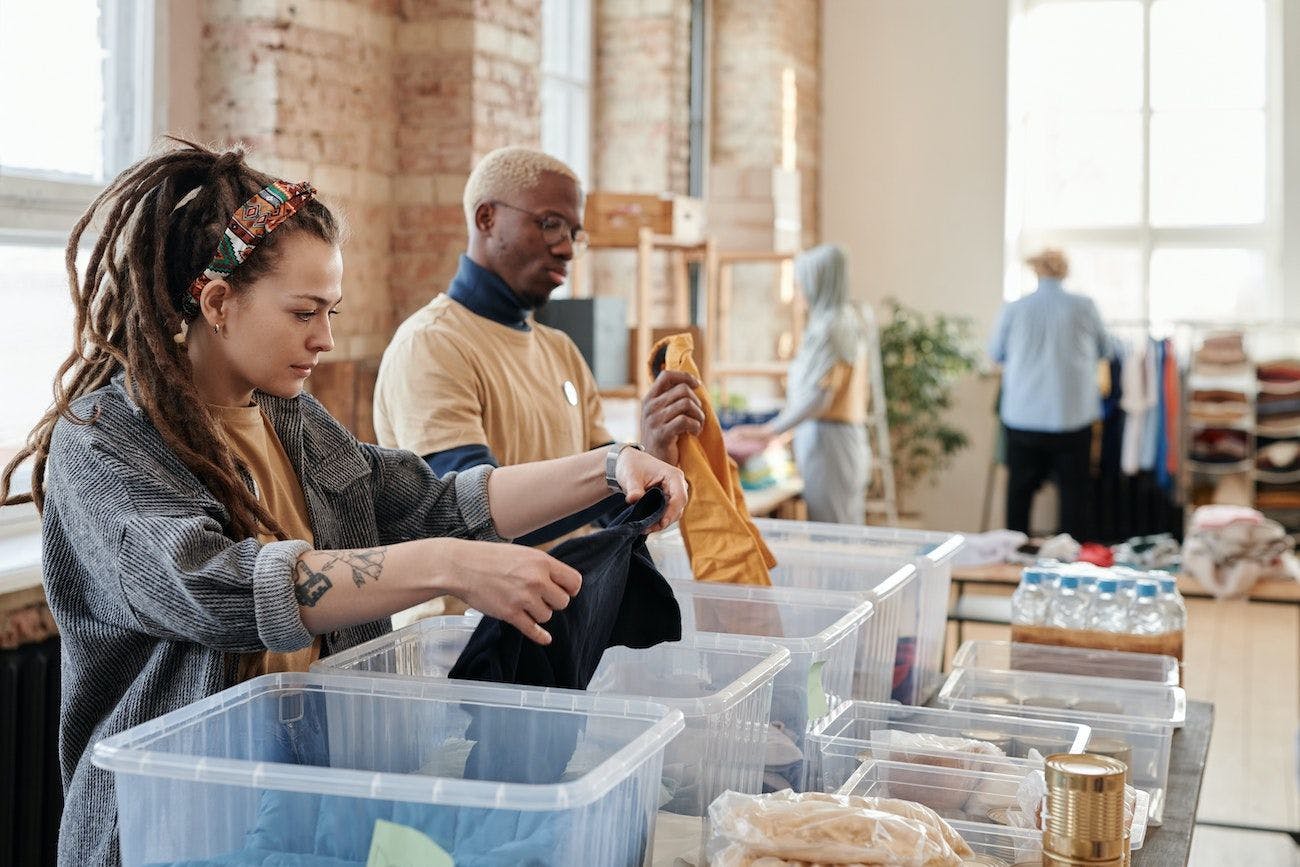
We all know giving back is a positive thing to do, but what impact can volunteering have on our wellbeing?
Volunteering had always been one of those things at the back of my mind that I’d get around to doing 'one day'. Well, one day came along with the pandemic when free time started flowing and the need for volunteers spiked.
I’ve now been volunteering on a weekly basis for Beat, The UK’s eating disorder charity, for nearly three years and I don’t plan on stopping any time soon. The main reason I do it, like most people who volunteer, is to support those in need. We do it to help others, to give back and to support a cause we care about.
Some volunteers have a personal connection to the organisation or cause they volunteer for, others simply choose what feels right or needed. I always knew I was going to get a sense of satisfaction from volunteering, but I didn’t know just how much it would affect my wellbeing.
Here are just some of the ways volunteering can benefit us.
It offers a sense of purpose
As humans, we often seek out meaning and purpose in our lives. Some find it through the work that we do or the relationships we cultivate. Something I love about volunteering is that it offers a sense of purpose outside of all of that. It adds a new dimension and may be perfect for those craving purpose but not finding it in their career.
Something I’ve learnt in recent years is that there are many different paths to fulfilment, and we owe it to ourselves to explore every one.
It allows you to use your experience and skills for good
In the volunteering I do, I use my lived experience of having (and recovering from) an eating disorder. Something so painful and dark has now been turned into something useful. I can take the lessons learnt and the hope found in recovery and share them with others.
You may have a different experience that can help others. Or, perhaps you’ve built up certain skills in your life that are invaluable to certain people. We all have something to offer, whether it’s a lived experience or the ability to truly listen.
Speaking on our podcast, I am. I have, listening volunteer at Samaritans, Kay, shares her story.
It promotes connection
When you become a volunteer, you typically join a community of volunteers. This can spark some incredible connections as you meet people with shared experiences and interests.
As my volunteering role is remote, I didn’t think I would experience that connection, but I was wrong. Whether through video calls, online training sessions or even in-person opportunities, I’ve had the chance to connect with fellow volunteers and Beat staff alike.
It supports generativity
Generativity is all about how we leave our mark on the world in the time we’re here. For some this involves leaving a legacy through family, for others it’s through the work they do or the art they create. Volunteering can add to this generativity pot, as we use our time to impact others in a positive and sometimes life-altering way.
Learn more about the art of leaving your mark.
It’s good for your mental health
There have been many studies into the benefits of volunteering and according to a study published in the Journal of Happiness Studies, those who volunteer at least once a month report better mental health than those who don’t volunteer (or those who volunteer less frequently).
There are many factors of volunteering that contribute to better mental health, including a general feeling of happiness when helping others, gaining perspective and that all-important connection.
As we’ve discussed, volunteering can have so many benefits, but it is also important to take care of yourself to ensure you have the capacity to help others. This can be especially true if the volunteering work you do involves sensitive subjects or personal experience.
Hopefully, the organisation will have support in place to help with this (Beat offers counsellor-led supervision sessions for volunteers and integrates information on self-care and boundaries into their training). Either way, be sure to check in with yourself regularly and if you need a break, take it – volunteering opportunities will be there for you when you’re ready.
Interested in trying volunteering? Reach volunteering can help you find the right role for you.

